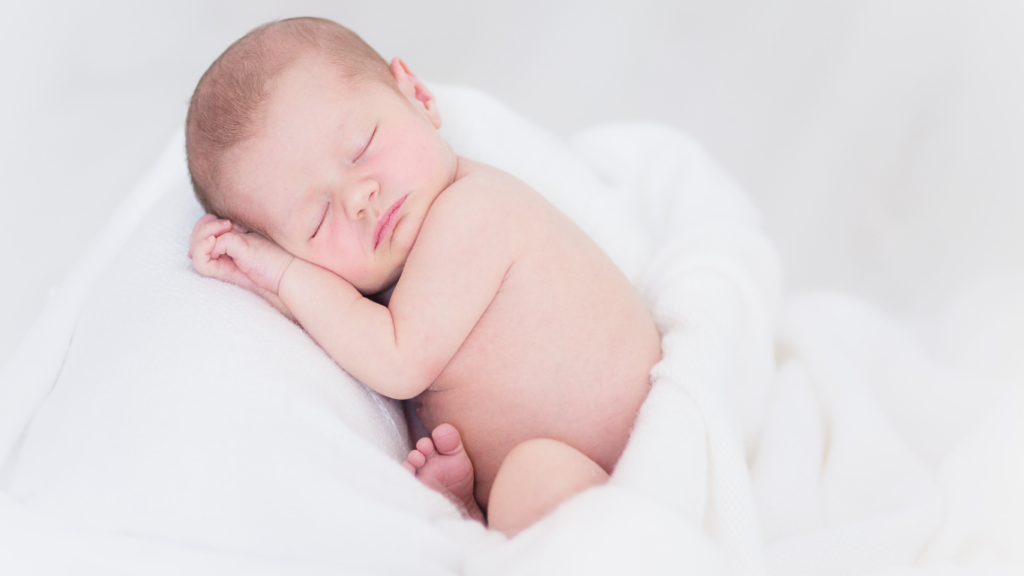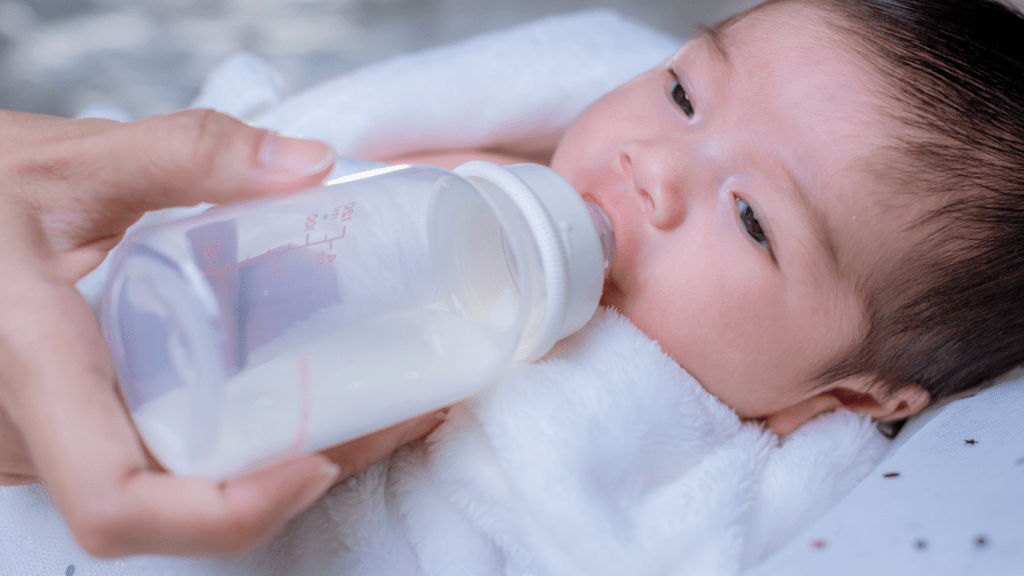Importance Of Newborn Care
Understanding the importance of newborn care is crucial for first-time parents. Newborns require attentive care and monitoring to ensure their well-being and healthy development. Proper newborn care minimizes health risks and promotes optimal growth.
Ensuring Health and Well-Being
Regular pediatric check-ups are vital in the early months. These visits help monitor growth, address any concerns, and administer necessary vaccinations. According to the American Academy of Pediatrics, infants should visit the pediatrician at least six times during their first year.
Promoting Development
Early interactions play a key role in a newborn’s development. Engaging in activities like talking, singing, and gentle play stimulates cognitive and sensory development. These interactions also strengthen the parent-child bond, which is essential for emotional and social growth.
Establishing Routines
Consistent routines help newborns feel secure. Regular sleep, feeding, and play schedules promote better sleep patterns and feeding habits. For example, establishing a bedtime routine can make it easier for the baby to differentiate between night and day.
Preventing Common Issues
Proper newborn care can prevent common health issues like diaper rash, colic, and infections. Keeping the baby clean and following safe sleeping practices reduces the risk of such problems. The Centers for Disease Control and Prevention recommend placing babies on their backs to sleep, lowering the risk of Sudden Infant Death Syndrome (SIDS).
Supporting Parental Confidence
Gaining confidence in newborn care reduces parental stress and anxiety. Knowledgeable practices and preparedness help new parents feel more in control. This confidence translates into a more harmonious and nurturing environment for the baby.
Preparing For Baby’s Arrival
Bringing a newborn home requires thoughtful planning. The following tips help ensure a smooth transition and create a welcoming environment.
Essential Items To Have
First-time parents need several essential items for their newborn:
- Clothing: Onesies, sleepers, and socks are necessary for everyday wear.
- Diapers and Wipes: Stock up on newborn-sized diapers and gentle wipes.
- Feeding Supplies: If breastfeeding, consider a breast pump and storage bags. For bottle-feeding, get bottles, nipples, and formula.
- Bathing Items: Baby shampoo, washcloths, and a soft towel are key for gentle baths.
- Sleeping Arrangements: A crib or bassinet with a firm mattress and fitted sheets ensure safe sleep.
Feel more prepared and reduce unexpected store runs by having these items ready.
Setting Up The Nursery
A well-organized nursery makes caring for a newborn easier. Key components include:
- Crib: Choose one that meets safety standards with an adjustable mattress height.
- Changing Station: Keep diapers, wipes, and creams within arm’s reach.
- Storage: Use dressers, shelving units, or storage bins for baby clothes, toys, and supplies.
- Lighting: Soft, dimmable lights help create a calm atmosphere for nighttime feedings and changes.
- Comfort Items: Consider a comfortable chair for feeding and cuddling, along with a white noise machine to soothe the baby.
Setting up the nursery in advance helps new parents better focus on their newborn and enjoy those early moments.
Feeding Your Newborn

Feeding a newborn is a crucial aspect of infant care. Ensuring proper nutrition supports healthy growth and development.
Breastfeeding Tips
Breastfeeding offers numerous benefits for both the baby and the mother. Positioning the baby properly can help prevent nipple pain and ensure efficient feeding. Hold the baby close, with their head tilted slightly back to allow easy latching. Ensure the baby’s mouth covers more of the areola to prevent soreness.
Frequent feeding is essential, as newborns usually eat every 2-3 hours. This helps establish milk supply and provides necessary nutrients. Watch for hunger cues like rooting or sucking on hands rather than waiting for crying, which is a late hunger sign. Staying hydrated and eating a balanced diet can help maintain milk supply.
Formula Feeding Guidelines
- Formula feeding requires careful preparation to ensure the baby’s health.
- Choose an iron-fortified formula to meet nutritional needs.
- Always follow the instructions on the formula package for proper mixing.
- Use sterilized bottles and nipples to minimize the risk of infection.
- During feeding, hold the baby in a semi-upright position to prevent choking and ear infections.
- Support the baby’s head and let them control the flow by pacing the bottle feeding.
- Most newborns consume 2-3 ounces every 3-4 hours initially.
Burping Techniques
Burping helps release any air swallowed during feeding, reducing discomfort and spitting up. Hold the baby upright against your chest with their head on your shoulder, and gently pat or rub their back. Alternatively, sit the baby on your lap, supporting their chest and head while gently patting their back.
Another effective method involves laying the baby face down on your lap while supporting their head and patting their back. Burp the baby halfway through feeding and after feeding to ensure all swallowed air is released.
Bathing And Hygiene
Proper bathing and hygiene practices are essential to keep your newborn clean, comfortable, and healthy.
Bathing Safety Tips
Always have everything you need within arm’s reach before starting the bath. Use a bath seat or support if bathing your baby in a full-size tub. Ensure the water temperature is around 98°F (37°C) to avoid burns and discomfort. Test the water with your wrist or elbow, as these areas are more sensitive to heat. Hold your baby securely at all times to prevent slipping. Never leave your baby unattended, even for a moment.
Umbilical Cord Care
Keep the umbilical cord stump clean and dry until it falls off, usually within one to three weeks after birth. Fold your baby’s diaper below the stump to avoid irritation and moisture. If the cord becomes soiled, clean it with a cotton swab dipped in clean water or rubbing alcohol. Watch for signs of infection, like redness, swelling, or foul odor.
Keeping Diapers Clean
Change your baby’s diaper every two to three hours, or immediately when soiled, to prevent rashes and infections. Clean your baby’s bottom with fragrance-free wipes or a damp cloth, wiping from front to back to prevent infections, especially in baby girls. Apply a thin layer of barrier cream with zinc oxide to protect the skin from irritation.
Sleep Tips For Newborns
Newborn sleep patterns can be unpredictable. However, establishing healthy sleep habits early can make a big difference.
Establishing A Sleep Routine
Creating a consistent sleep routine helps newborns understand when it’s time to rest. Start with simple steps like dimming the lights, reducing noise, and engaging in calming activities such as gentle rocking. I focus on creating a calm environment before bedtime. This signals to my baby that it’s time to sleep, making it easier for them to settle down.
Safe Sleep Practices
Safety is critical when setting up a newborn’s sleep environment. Place the baby on their back in a crib with a firm mattress and no soft bedding, pillows, or toys. I ensure the sleep area is free of hazards, and I always follow the safe sleep guidelines outlined by the American Academy of Pediatrics. Keeping the room at a comfortable temperature also contributes to safer sleep.
Dealing With Night Wakings
Night wakings are common for newborns. To manage these, I try to keep nighttime interactions calm and soothing. Using a low, gentle voice and minimal lighting helps maintain a sleepy atmosphere. When my baby wakes up, I address their needs promptly, whether it’s feeding or a diaper change, and then gently encourage them back to sleep.
Bonding With Your Newborn
Creating a strong bond with your newborn forms the foundation for their emotional and cognitive development. Here’s how skin-to-skin contact and effective communication can foster this connection.
Skin-To-Skin Contact
Holding your newborn against your bare chest promotes immediate and long-term benefits. Skin-to-skin contact regulates your baby’s body temperature, heart rate, and breathing. This practice also supports breastfeeding, as it stimulates milk production and helps the baby latch more easily. Moreover, it fosters a sense of security and comfort, reducing stress for both the baby and you. Engage in this bonding method as early as possible for maximum impact.
Communicating And Soothing
Interacting with your newborn through gentle talking and singing enhances their language skills and strengthens your bond. Babies respond to your voice, recognizing it from when they were in the womb. Use soothing tones and smile often, as facial expressions help your baby learn visual cues for emotions.
For soothing, try gentle rocking and swaddling. Rhythmic movements remind them of the womb, providing comfort. Swaddling keeps them snug and can reduce startle reflexes, promoting better sleep. Use these techniques during fussy periods to calm your baby effectively.




